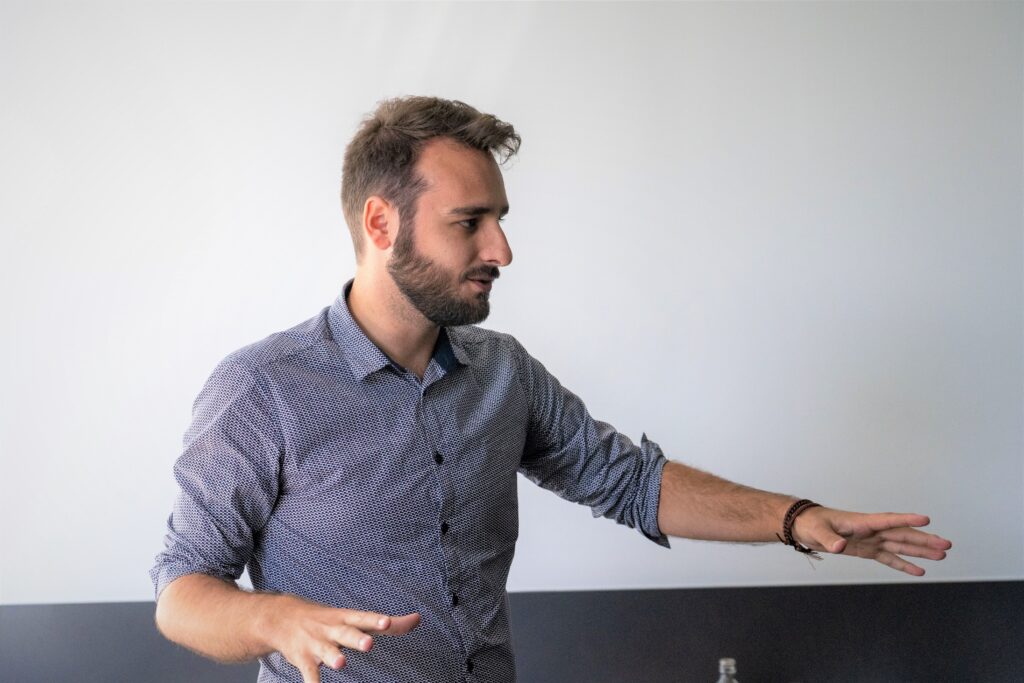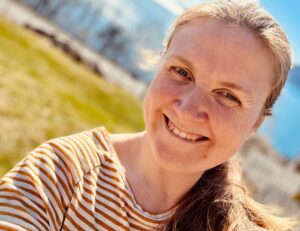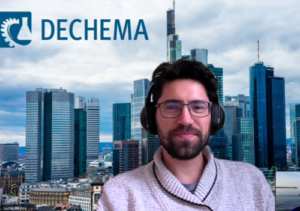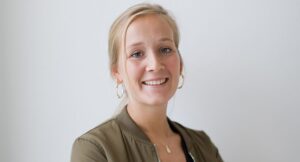Loïc Charpentier participated in our first EJWP group, which graduated in November 2021. He is originally from Bordeaux, France, and is working with Water Europe in Belgium. Loïc shares in an interview what he is working on today, and how impressions from his two-year EJWP journey are still relevant in his work.
What are you working on now?
The advocacy programme of Water Europe has quite a diverse set of tasks currently under development. For example, we just came back from the 2023 UN Water Conference where we ran a set of side events in partnership with our members and European institutional actors. Our objective is to support the achievement of Water-Smart Societies in Europe and beyond, as well as raising awareness about water. Another part of the job is to deal with regulatory dossiers to make sure that we have the right drivers in European legislation. For example, the current recast of the Industrial Emissions Directive and the urban wastewater treatment directive are important dossiers on our plate.
What difference have EJWP projects and development have made in your career so far?
In terms of collaborative methods and culture diversity management, I learned a lot and I am still using the skills developed during the programme. It is clear that when you are working with more than 250 members across 30 countries, you should be ready for different types of social interactions. This is also a working environment in which collaboration needs to take different forms depending on the expected outcomes. Therefore, the set of methods that we explored in the EJWP is relevant. In fact, I have still the EJWP recap manual on my desk at work today.
How do you view the value of connecting organizations in the sector ie. sharing knowledge across borders, cooperation in projects – and how programs like EJWP are doing in facilitating this?
No matter if you agree or not, the European Union is partially working as a federal State, and consequently, we need to collaborate and partner between the different European water-related stakeholders to advocate and collaborate within the EU water-related programmes. Moreover, research and innovation are by nature based on collaboration and require an interdisciplinary approach. A programme such as EJWP is particularly relevant in connecting young professionals. I can say especially that it is quite exceptional to choose the water sector first in a career path, and such a connection facilitates the knowledge exchange and a better understanding of this fragmented sector.
What are your thoughts on young professionals’ contribution in the sector and in global platforms and COP climate events?
I do believe that the main challenge is not to have more global platforms for the youth, but to make sure that these people are effectively involved in the sector. However, this aspect – in my opinion – is mainly linked to what may be limited labor market parameters in each country. It’s more a cross-sectoral issue, and I would say that it is more visible in the water sector due to stress factors that we are facing in terms of skills and workforce.






